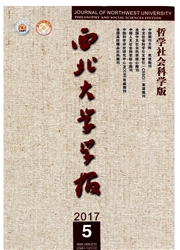

 中文摘要:
中文摘要:
需求评估是连结护理服务需求与服务供给的重要环节,是获得长期护理保险赔付的依据,而目前在我国护理服务的需求评估并没有得到应有的重视。本研究通过访谈等质性调查方法及政策文本分析方法,比较分析德国长期照护保险、日本的介护保险以及韩国长期照护保险制度中需求评估的实施,对比研究我国残疾人护理补贴的实施办法,探索需求评估在老年长期护理保险中的作用及实施策略。研究发现长期护理保险制度中需求评估不能沿用养老服务需求评估的办法,在现有制度下,养老服务需求评估结果对于中等以上收入的老人没有明显的意义,仅仅只是政府发放补贴的工具。最后,从需求评估角度对老年长期照护保险提出了意见和建议。首先,应借鉴残疾人评定的办法,加强长期照护保险制度规范性结构研究,明确各方责任。其次,解决财务分担及服务输送问题。
 英文摘要:
英文摘要:
Needs evaluation is an important part to link demand and supply of nursing service, and it is the ba- sis of getting the payment of long - term care insurance. The purpose of this study is to uncover why the needs evaluation toward elderly long - term care service delivery system which has received only scant attention. This research adopts qualitative research approach to interview several social workers and the grassroots cadres of civil affairs. Then, it compares the differences of the construction process of needs evaluation in Germany, Ja- pan, and Korea. The new subsidies system of disabled persons have been put into effect this year. The disa- bility certification was necessary. It finds that the assessment of the needs evaluation is more likely to judge the subsidies of service to the government rather than to the elderly and their family, in particular, to the medium or medium above family. Following detailed discussion on major findings, this paper provides several sugges- tions for future adjustments for older people's long -term care insurance.
 同期刊论文项目
同期刊论文项目
 同项目期刊论文
同项目期刊论文
 期刊信息
期刊信息
